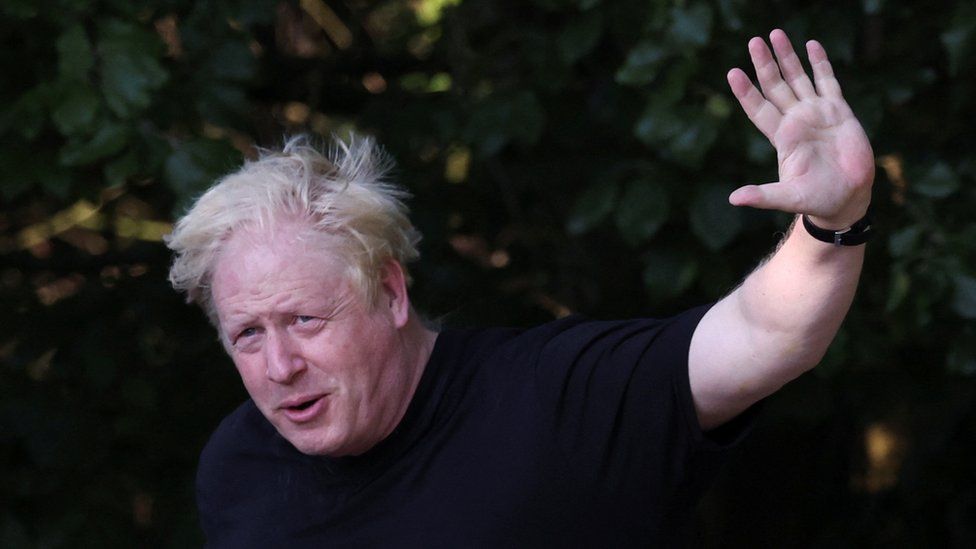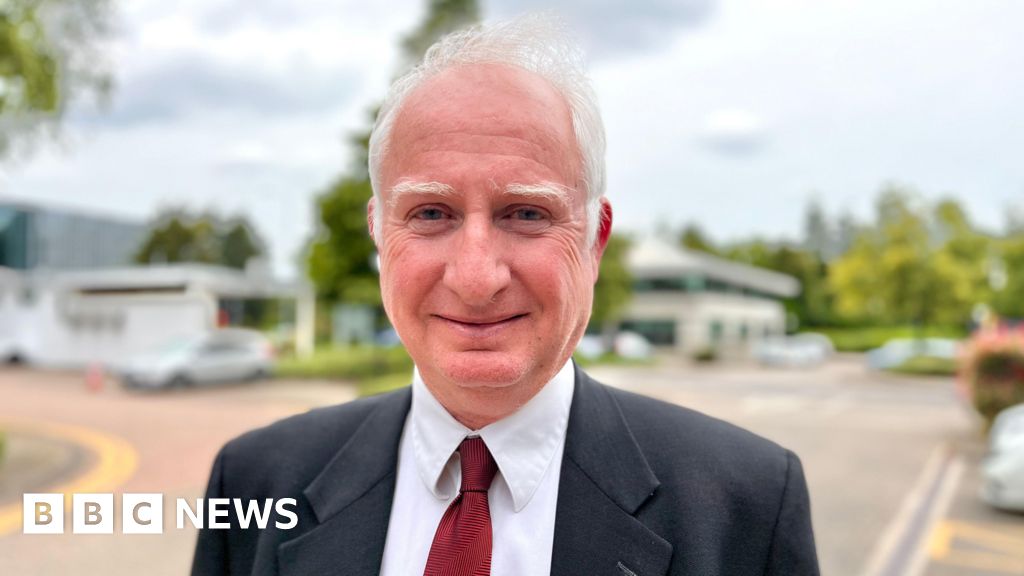ARTICLE AD BOX
 Image source, Reuters
Image source, Reuters
By Paul Seddon
Politics reporter
MPs will decide later whether to endorse a report that found Boris Johnson deliberately misled Parliament over lockdown parties in No 10.
A year-long inquiry from the Commons privileges committee said the former prime minister committed repeated offences with his Partygate denials.
It recommends he should have been suspended from the Commons for 90 days if he had remained an MP.
Rishi Sunak is yet to confirm whether he will vote on its findings.
It will be a free vote for Tory MPs, meaning party managers - known as whips - will not instruct them what to do at the vote, which is expected to take place on Monday evening after a debate.
The report is expected to pass easily, but it is unclear whether a vote will be recorded, with Mr Johnson asking his allies not to vote against it.
It is likely that some Conservative MPs could abstain or not turn up to take part.
Housing Secretary Michael Gove, who also served in Mr Johnson's cabinet, has confirmed he intends to abstain - becoming the only member of the Sunak government to say what he intends to do.
Speaking on Sunday, he told the BBC there were areas where Mr Johnson's conduct had fallen short of expectations, but he disagreed with the report's recommendation for a 90-day suspension.
The vote is tricky politically for the prime minister, who is embroiled in a bitter war of words with his former boss over his resignation honours list.
Mr Sunak vowed to put "integrity" at the heart of his government upon entering Downing Street, and will be under pressure from opposition MPs to approve the findings from the cross-party committee.
But voting for it would enrage Mr Johnson's supporters, some of whom have attacked the committee over their conclusions.
Mr Johnson himself also lashed out at the committee in an angry statement announcing his resignation as an MP before the report's publication, branding it a "kangaroo court".
Watch: Key moments from Boris Johnson's Partygate grilling
Commons votes are initially conducted by voice, with a division - where MPs go through the voting lobbies to record their support - only called if the Speaker thinks the result is not obvious.
Opposition MPs are expected to shout "aye" later to approve the report, but if no MP in the chamber shouts "no" then there won't be a division, meaning the votes of individual MPs will not be recorded.
In their report, the privileges committee said Mr Johnson had deliberately misled MPs when he assured them after the Partygate scandal emerged that lockdown rules had always been followed in No 10.
Mr Johnson argued during the inquiry that his assurances were made in good faith, and were based on advice from officials.
But the MPs found he had "personal knowledge" of rule-breaking events, and had failed to "pro-actively" investigate allegations that Covid rules had been broken during the pandemic.
Parliamentary pass
They concluded he had committed multiple "contempts" of Parliament - including by attacking the committee, which they added justified the 90-day ban, which is lengthy by the standards of recent years.
The report also recommends that Mr Johnson should be denied a parliamentary pass, which he would normally be entitled to as an ex-MP.
Several of Mr Johnson's allies have heaped criticism on the committee for its findings.
Nadine Dorries, who was culture secretary in Mr Johnson's cabinet, said the committee had "overreached," warning that any Tory MP voting to endorse it would be "held to account" by party members.
However, it is not clear how many of his allies are ultimately willing to turn up to register their opposition.

 1 year ago
16
1 year ago
16








 English (US)
English (US)